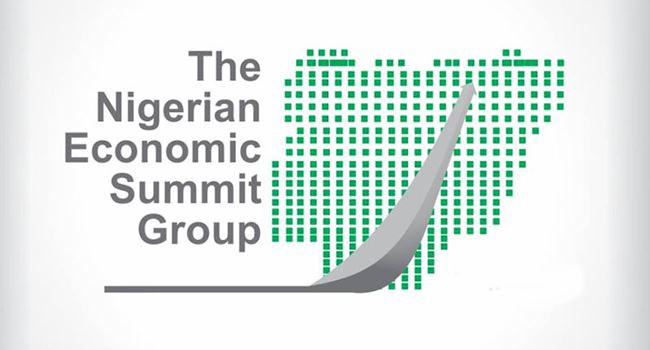Business
NESG warns 2025 budget insufficient to meet urgent national needs

The Nigerian Economic Summit Group (NESG) has raised concerns that the 2025 budget falls short of meeting Nigeria’s critical social and infrastructure demands.
In its latest publication, “2025 FGN Budget Analysis: Can the Budget Deliver a Major Economic Boost?,” the policy think tank highlighted persistent structural issues in the country’s fiscal planning, warning that without significant changes, Nigeria’s economic development goals would remain out of reach.
The NESG observed that public investment continues to be treated as a “residual budget item,” receiving only what is left after recurrent expenditures, including salaries, overheads, and debt servicing, have been settled. This budgeting approach, it said, has repeatedly undermined multi-year infrastructure and social development programmes.
Between 2015 and 2024, total government spending averaged just 13.1 percent of Nigeria’s Gross Domestic Product (GDP), a figure far below the global average of 30 percent, and significantly lower than the Sub-Saharan African regional average of 21.2 percent.
In the appropriation bill, the federal government earmarked ₦27.96 trillion, approximately 50.8 percent of the total ₦54.99 trillion budget for recurrent expenditure, which includes debt obligations and non-debt expenses. Meanwhile, capital expenditure, which funds critical infrastructure and social investments, was allocated 49.2 percent.
The NESG cautioned that chronic underinvestment in infrastructure and human capital development continues to stifle Nigeria’s economic diversification efforts.
READ ALSO: SERAP threatens Zuckerberg, Meta with legal action over non-payment of $220m fine
“In addition, the current operational public finance management framework of the Federal Government of Nigeria is considered less effective in ensuring the government’s annual budget plays its economic stabilisation and balancing role,” the report noted. It argued that unless there are improvements in how resources are mobilized and allocated, the size of the budget alone will not translate into meaningful economic gains.
Despite its shortcomings, the NESG acknowledged some positive aspects of the 2025 budget, particularly its emphasis on using public spending to stimulate aggregate demand and support output growth. It also noted that, for the first time in recent years, capital expenditure slightly surpassed non-debt recurrent expenditure. This is an ambitious fiscal stance that prioritizes infrastructure, debt servicing, and expanded allocations to statutory bodies, including newly established regional development commissions.
However, the NESG emphasized that three persistent challenges continue to undermine budget performance: inefficiencies in public spending, weak revenue optimization, and the growing burden of debt servicing. These issues, it warned, threaten to drag down economic growth year after year.
Another pressing concern raised in the report was Nigeria’s low per capita public spending compared to peer economies. With a population of approximately 230 million, the 2025 budget translates to a per capita allocation of just ₦239,087, or about US$159.4 annually. This figure is starkly lower than South Africa’s public spending of about US$1,957 per capita, and also falls well below the peer country average of US$800.
The situation is even more troubling in essential sectors such as health and education. The federal government allocated only ₦2.38 trillion (US$1.49 billion) to health services and less than ₦2.59 trillion (US$1.62 billion) to education services for 2025.
The NESG warned that sustained underfunding of these vital sectors would have damaging long-term consequences for Nigeria’s human capital development, economic competitiveness, and efforts to reduce poverty.
“These figures indicate that Nigeria’s budgetary provisions are grossly inadequate to address pressing social and infrastructure needs,” the group concluded.
Join the conversation
Support Ripples Nigeria, hold up solutions journalism
Balanced, fearless journalism driven by data comes at huge financial costs.
As a media platform, we hold leadership accountable and will not trade the right to press freedom and free speech for a piece of cake.
If you like what we do, and are ready to uphold solutions journalism, kindly donate to the Ripples Nigeria cause.
Your support would help to ensure that citizens and institutions continue to have free access to credible and reliable information for societal development.




























